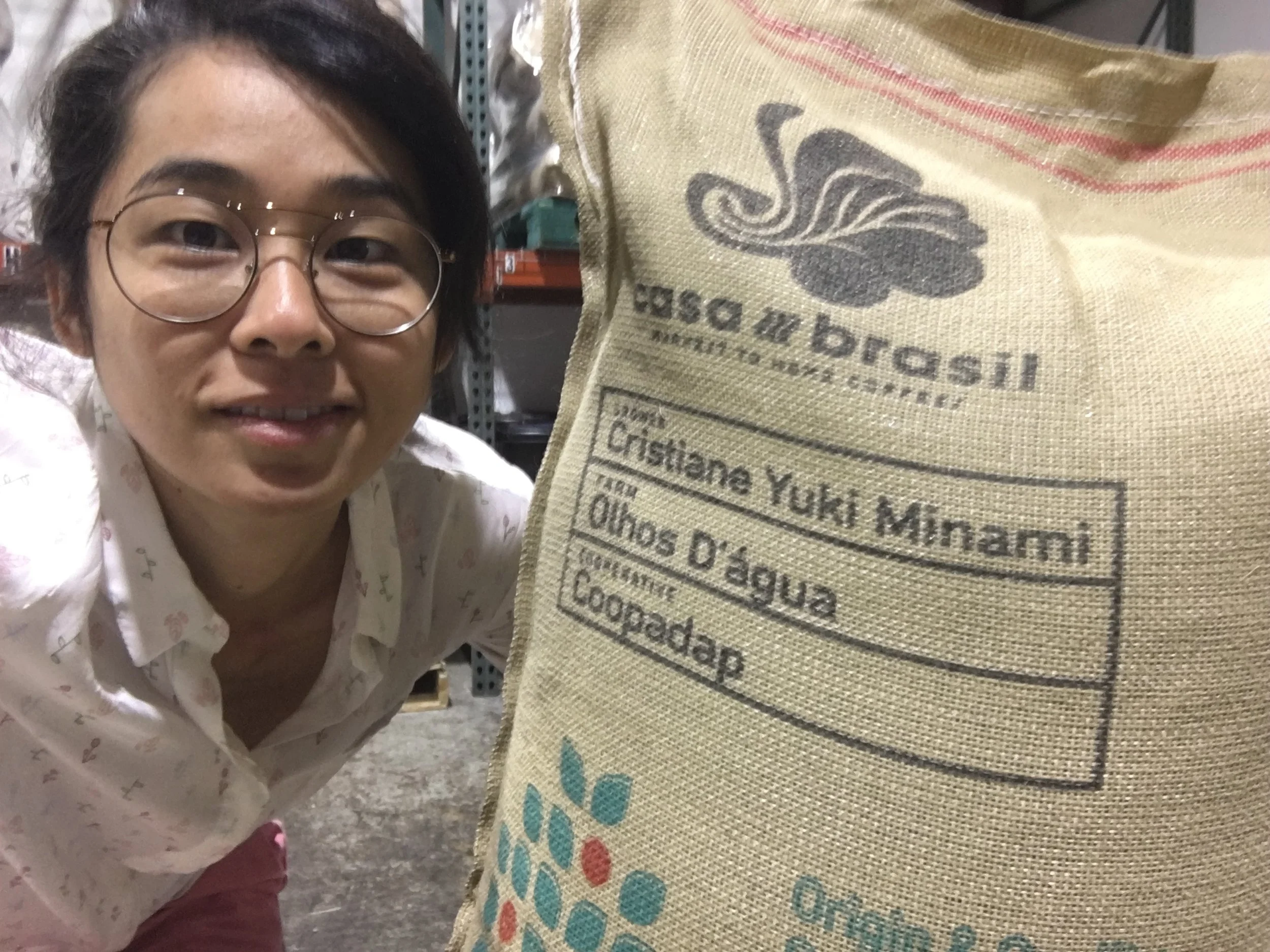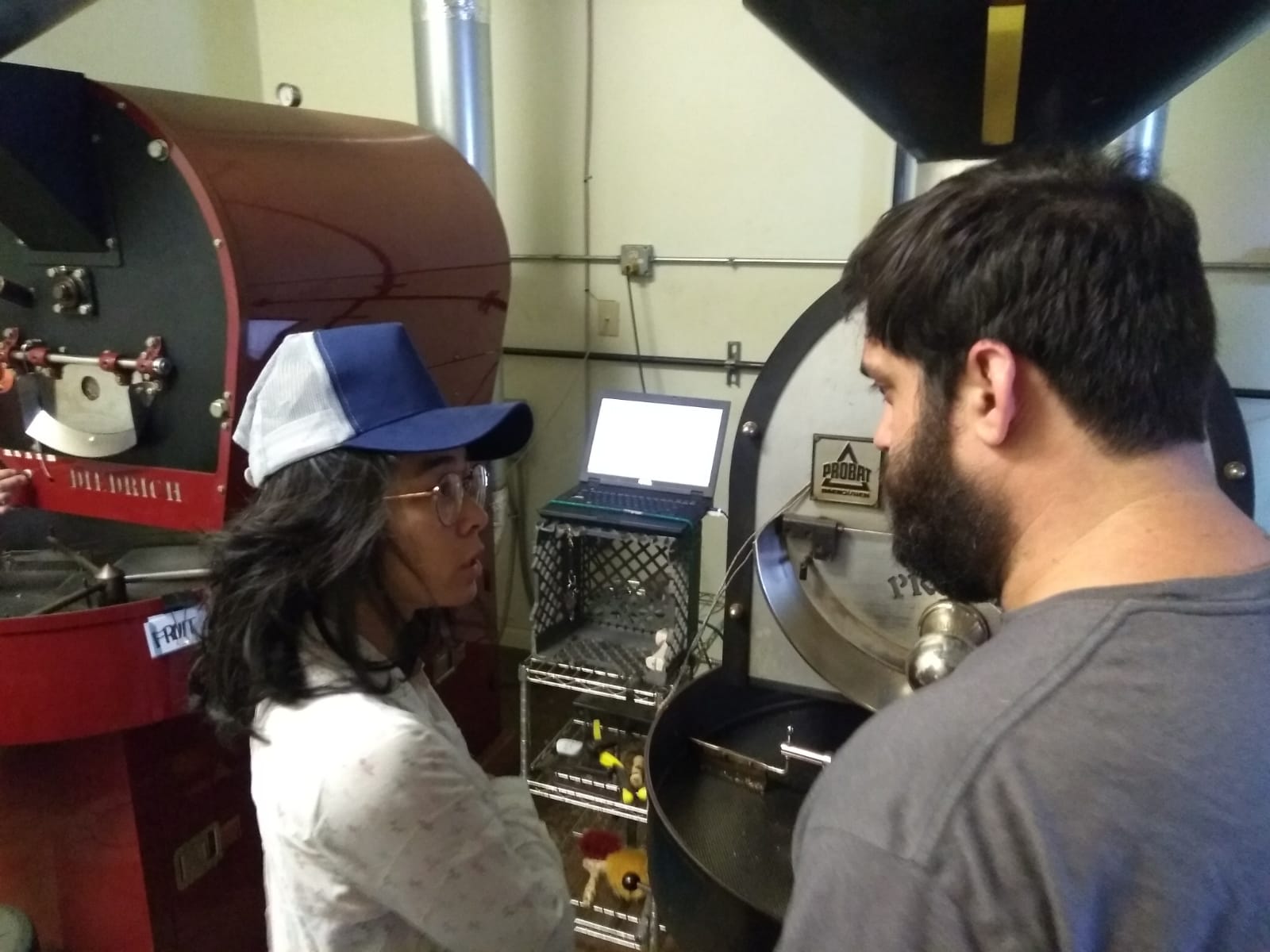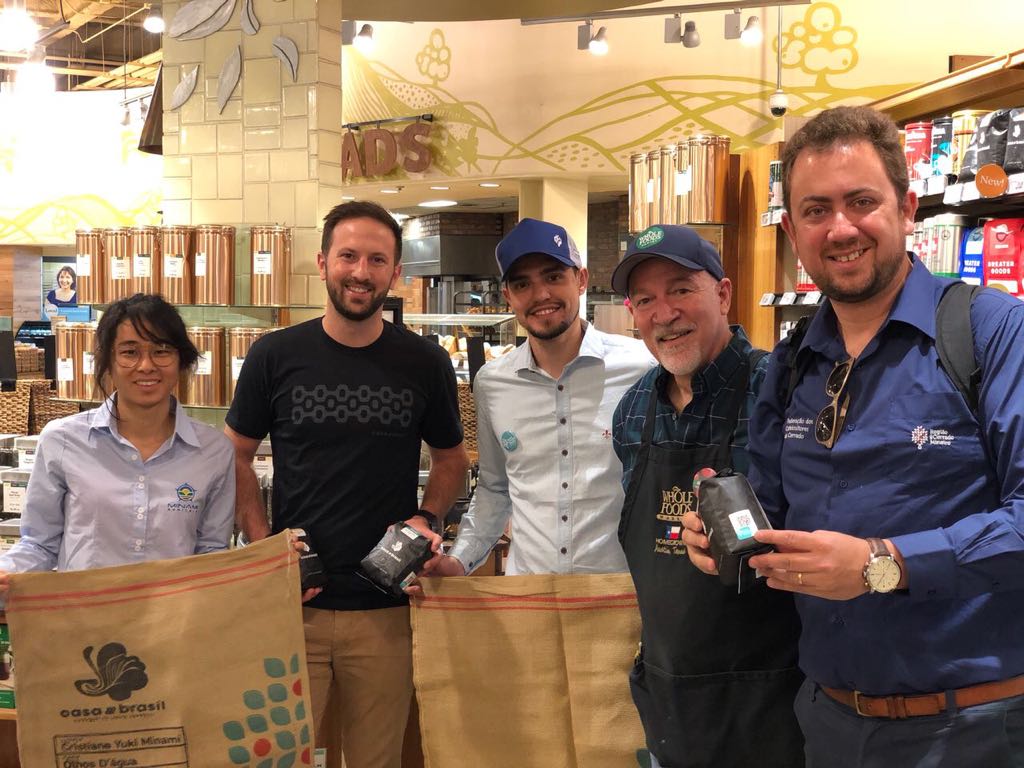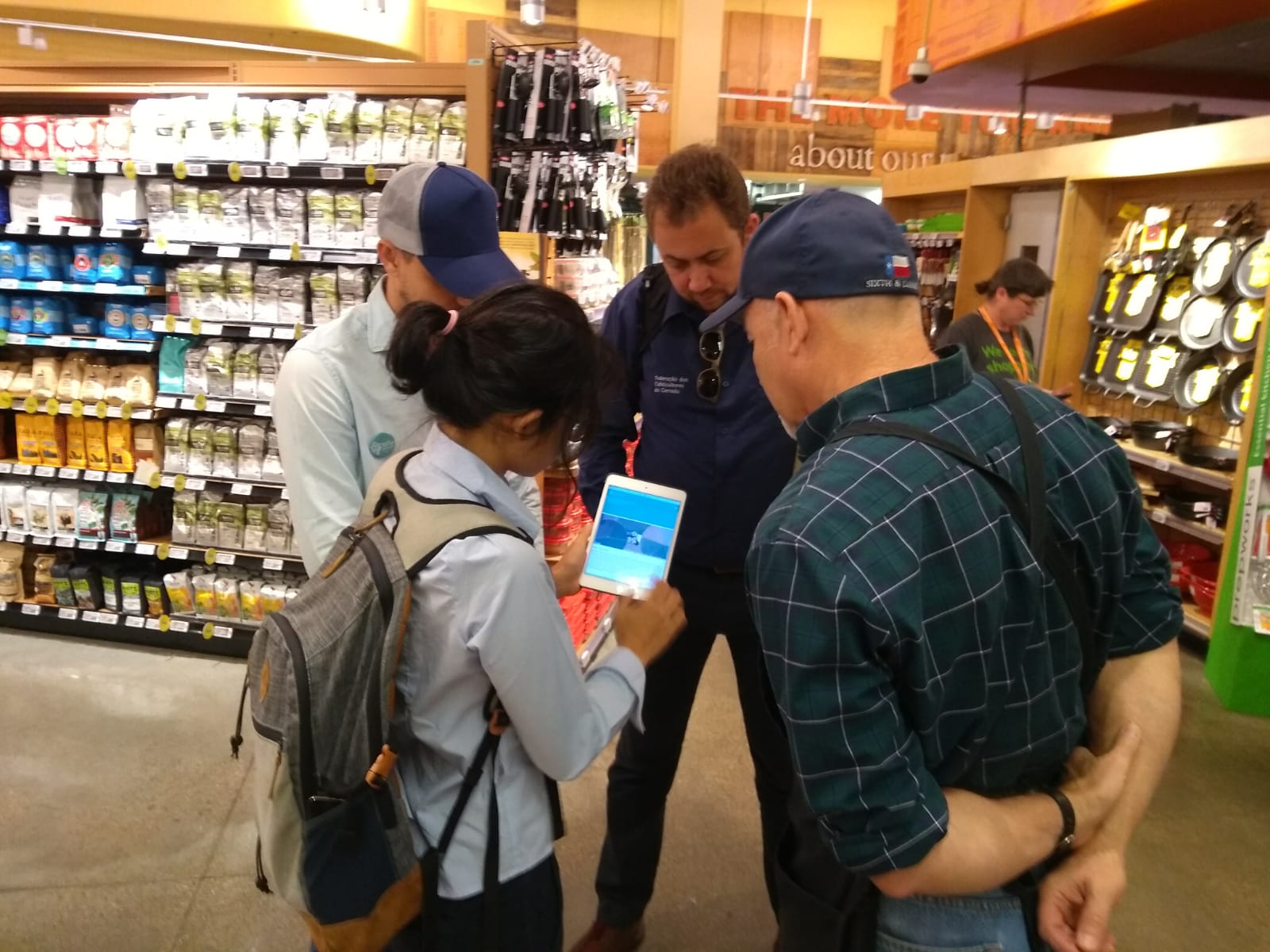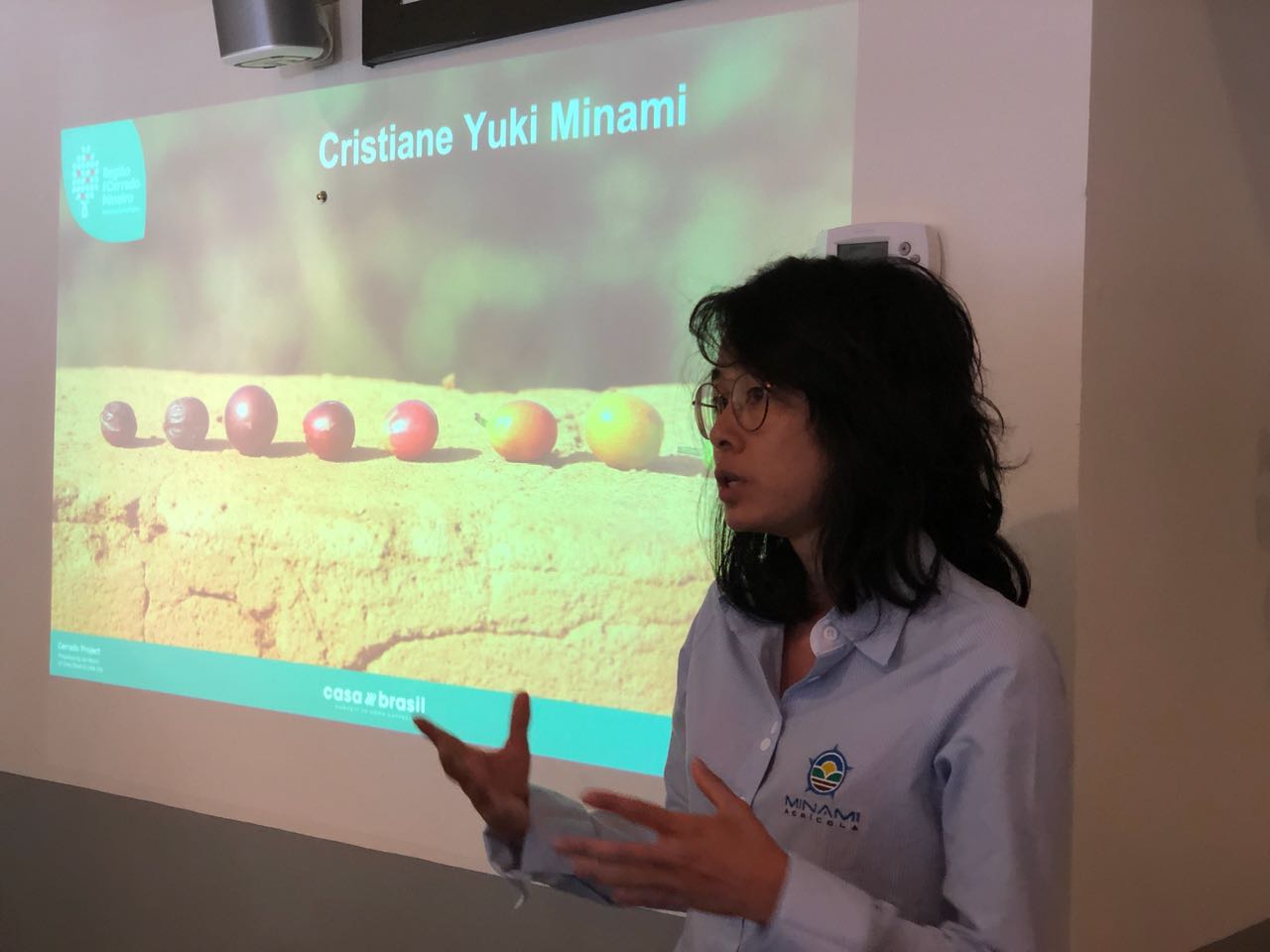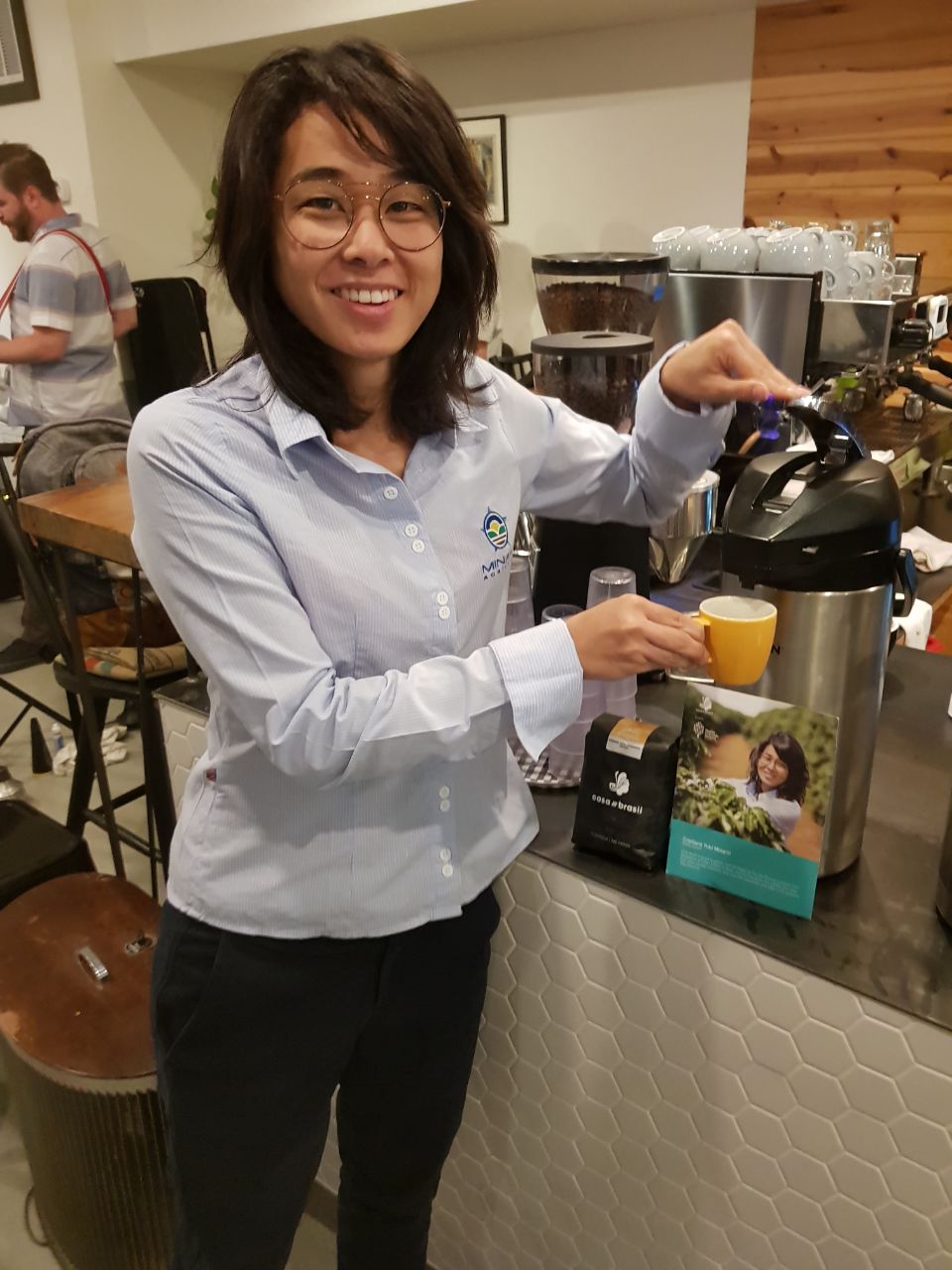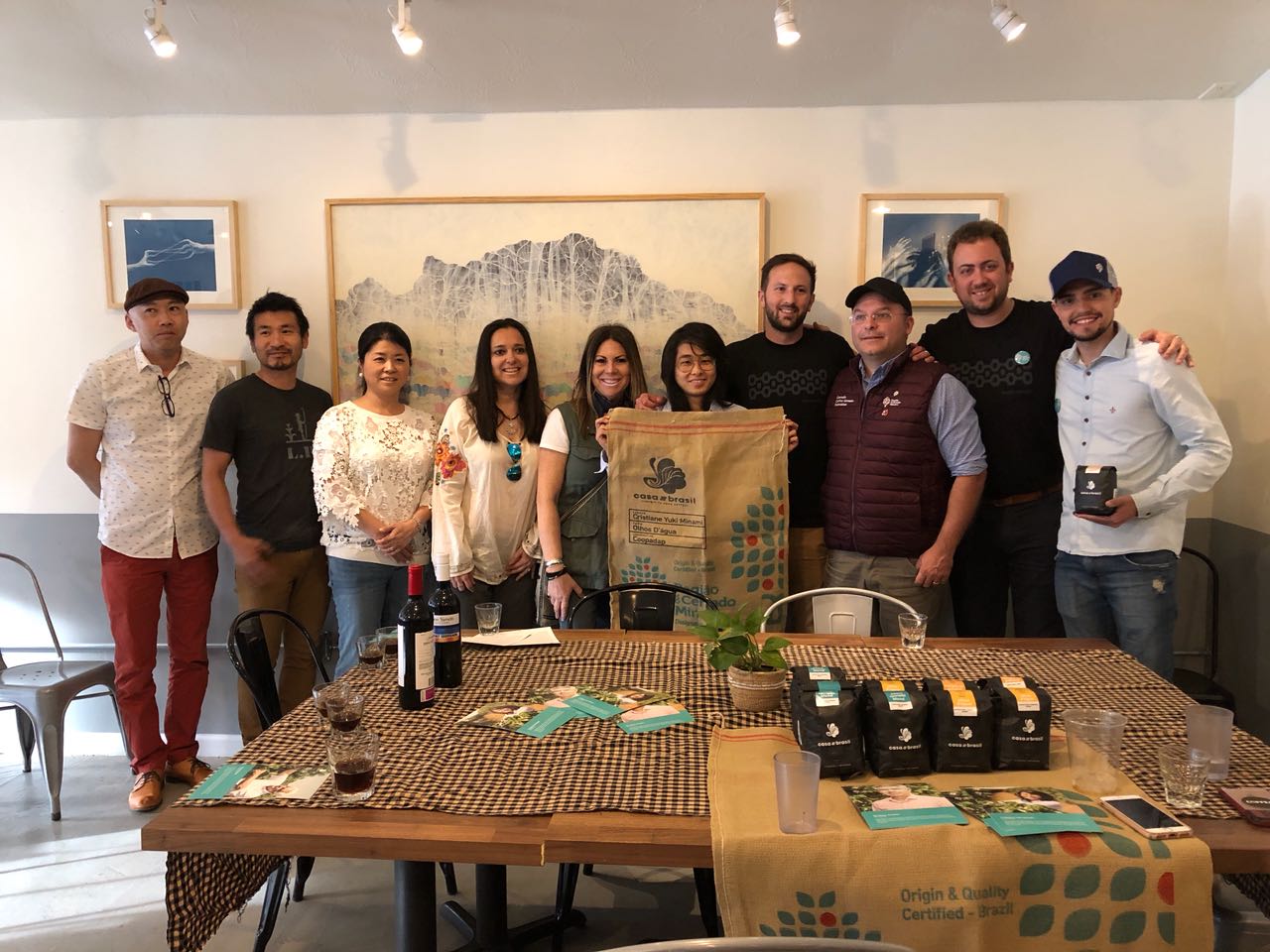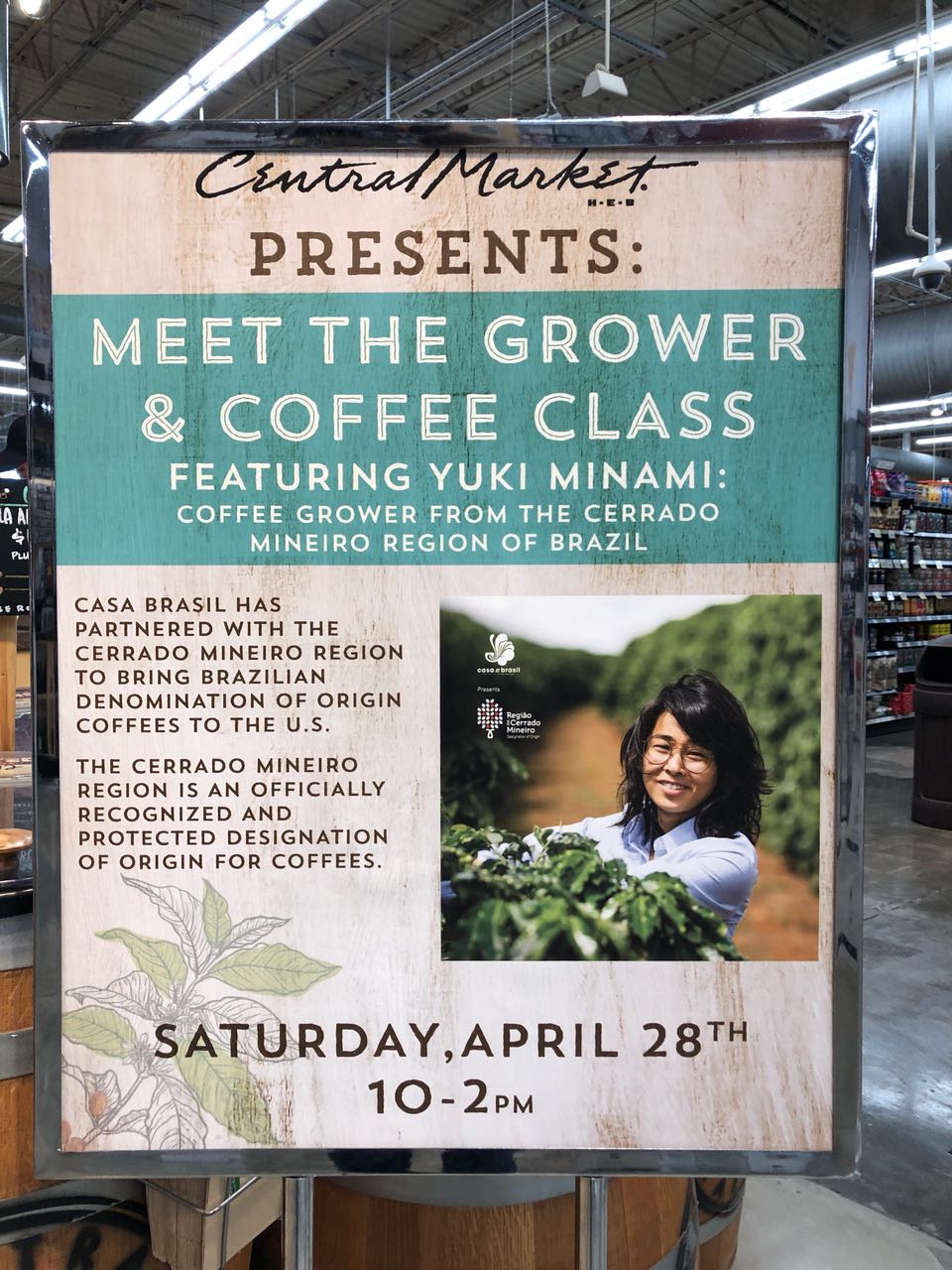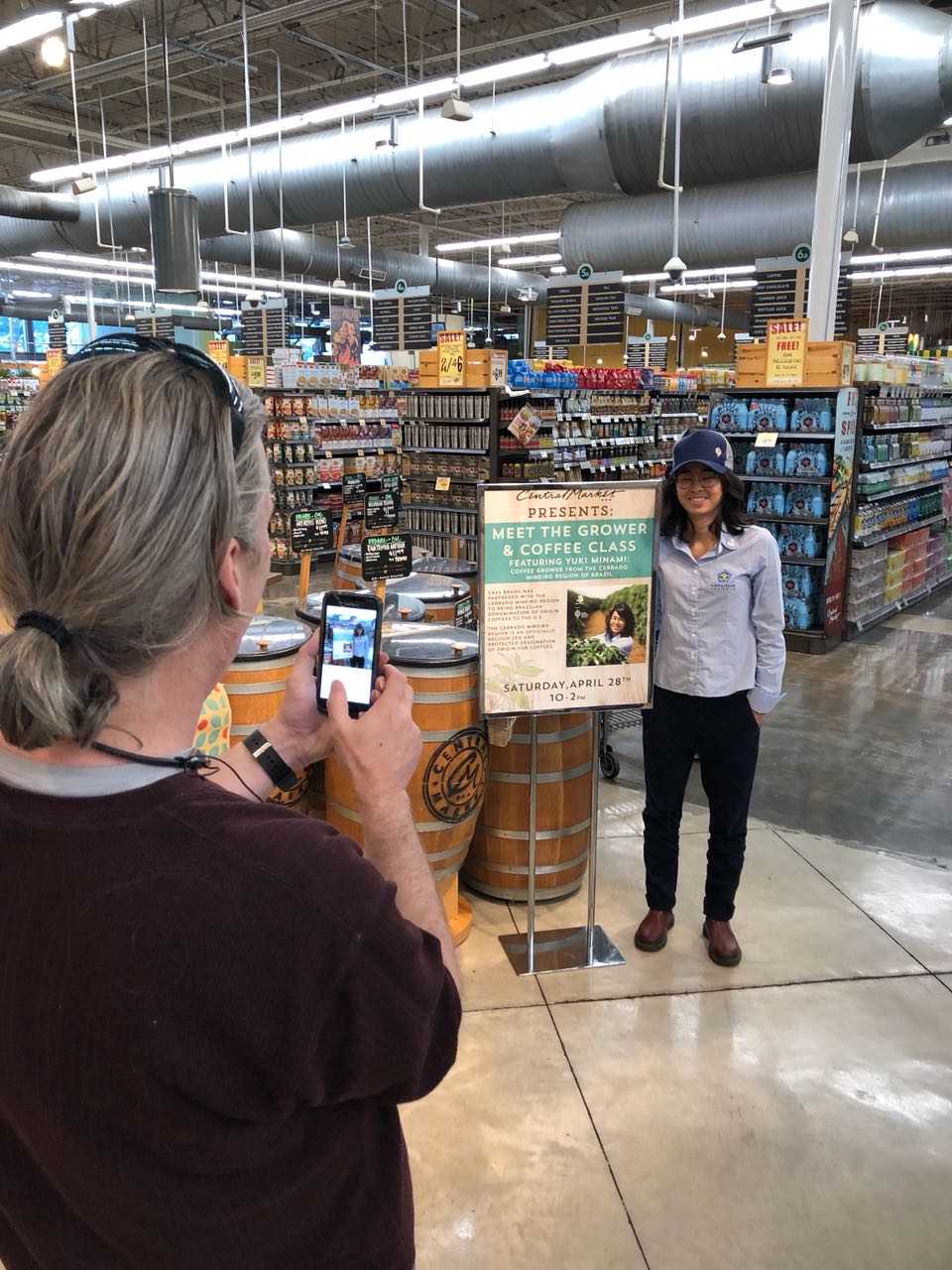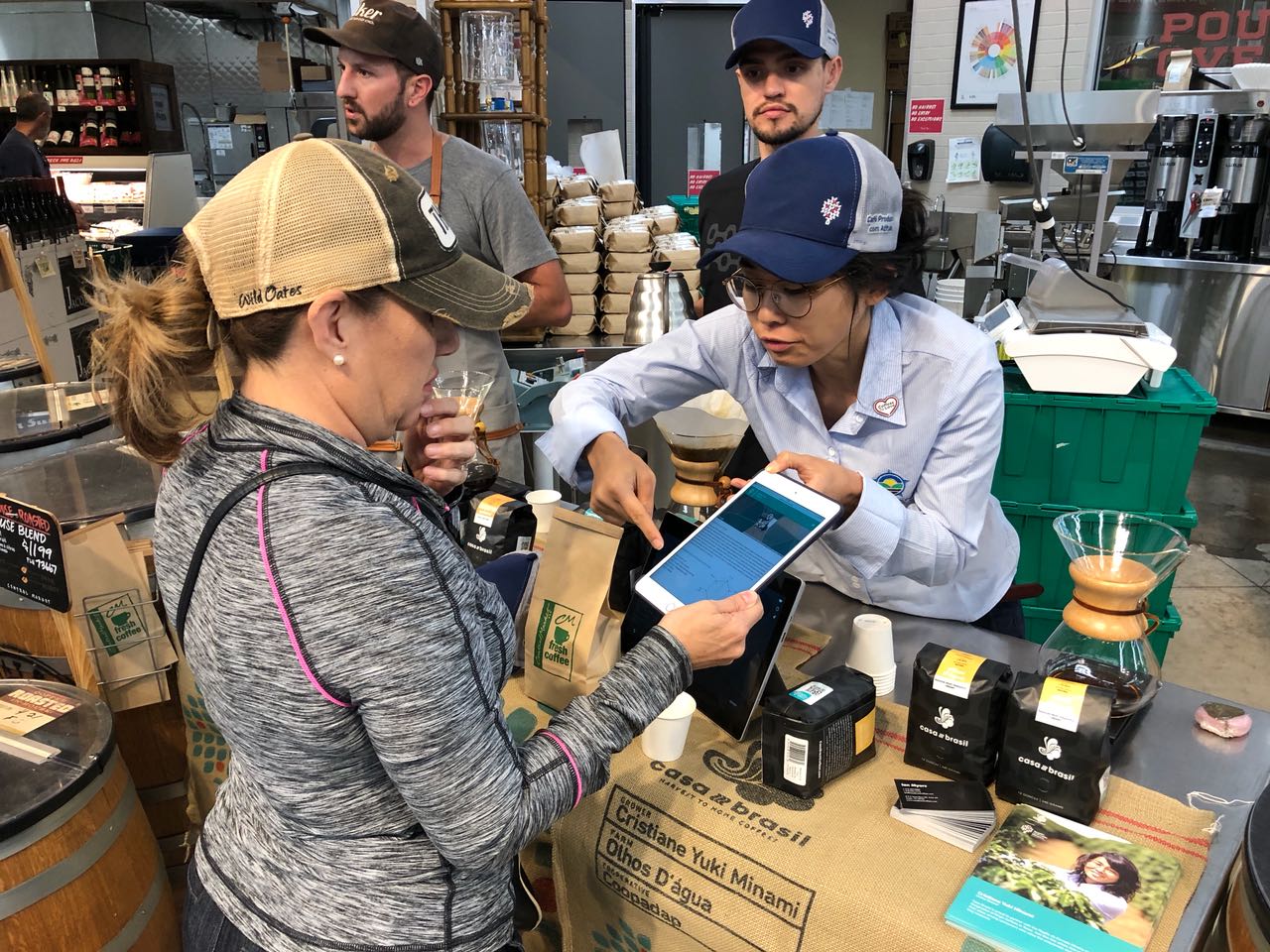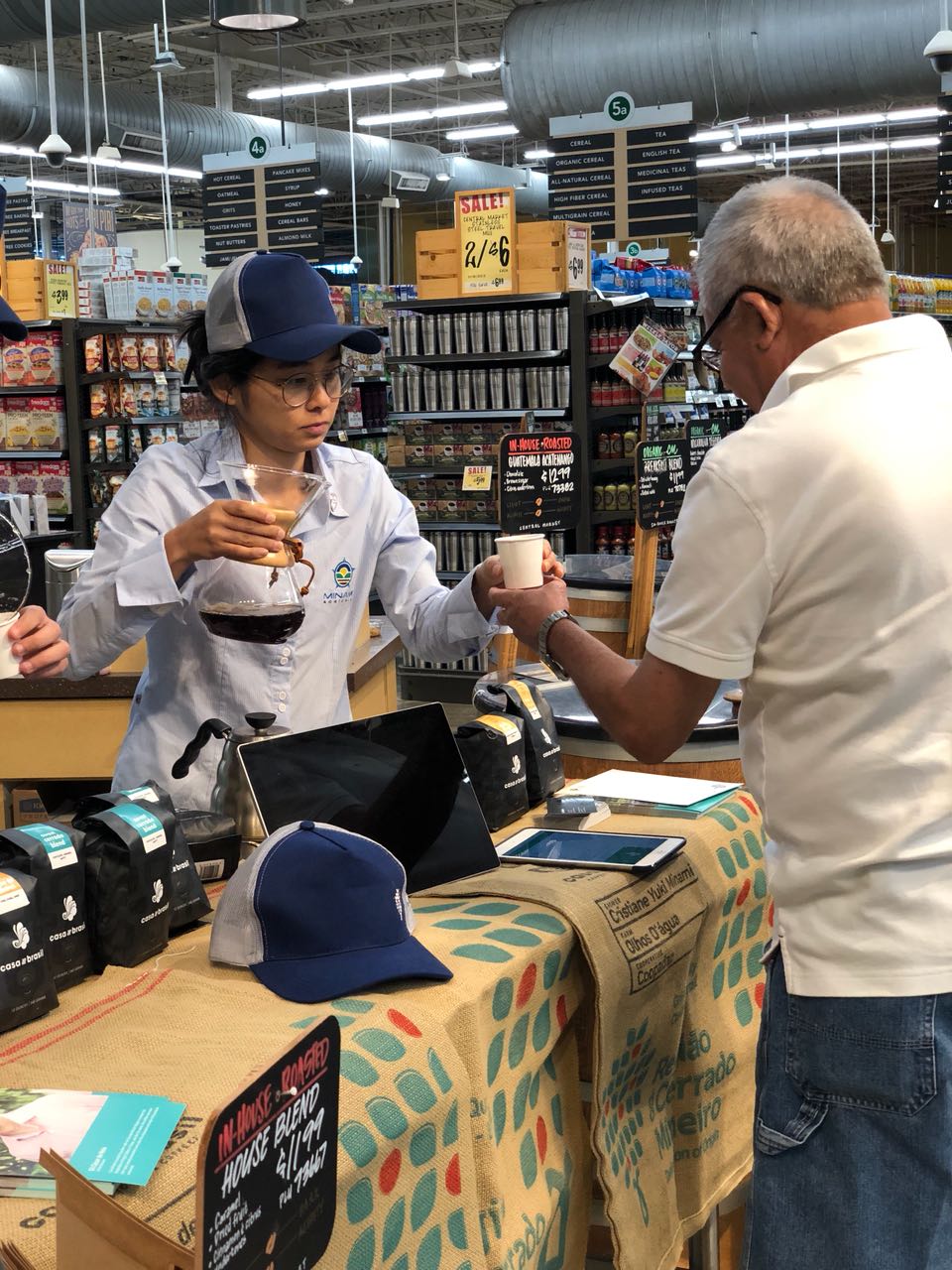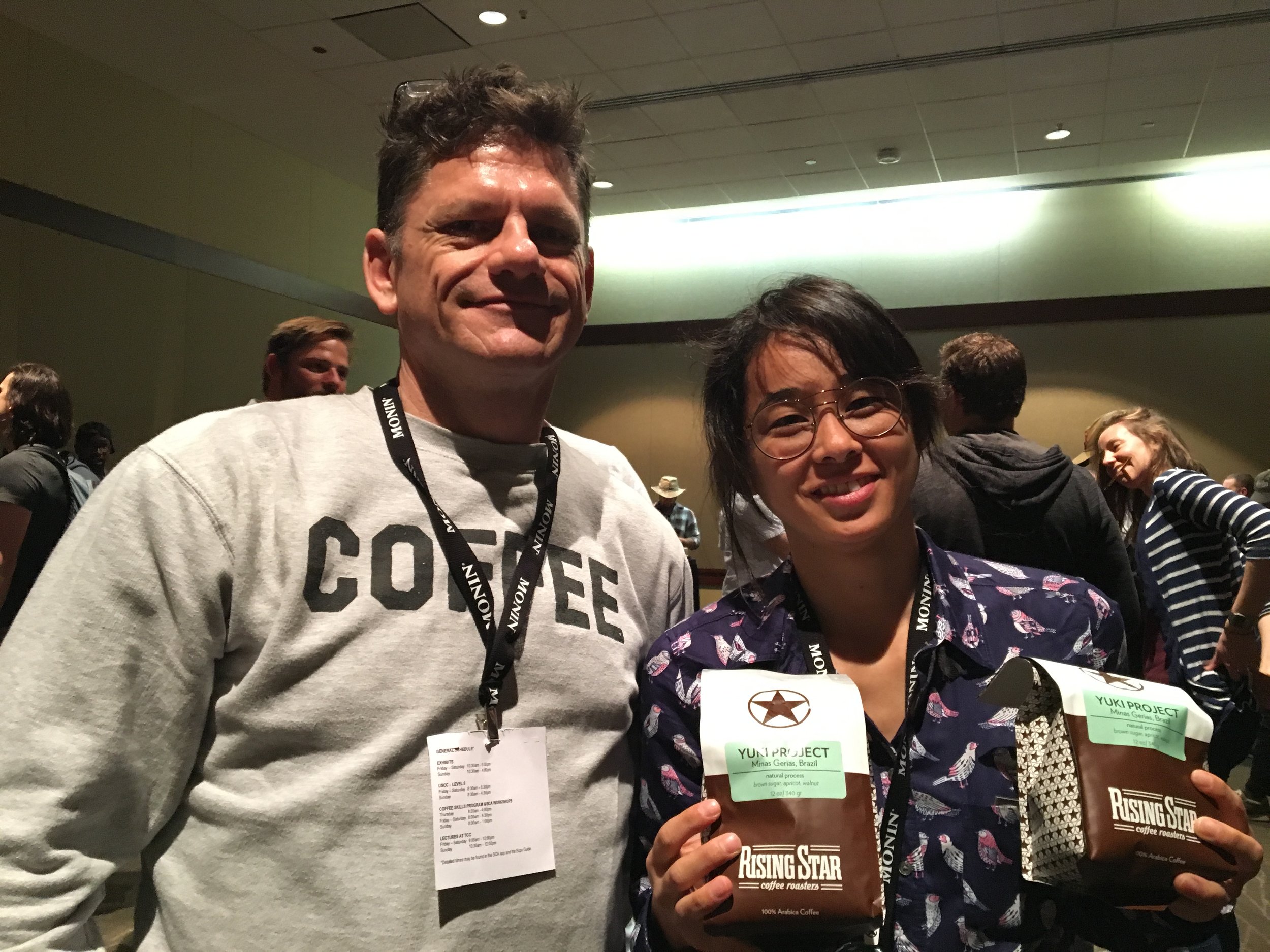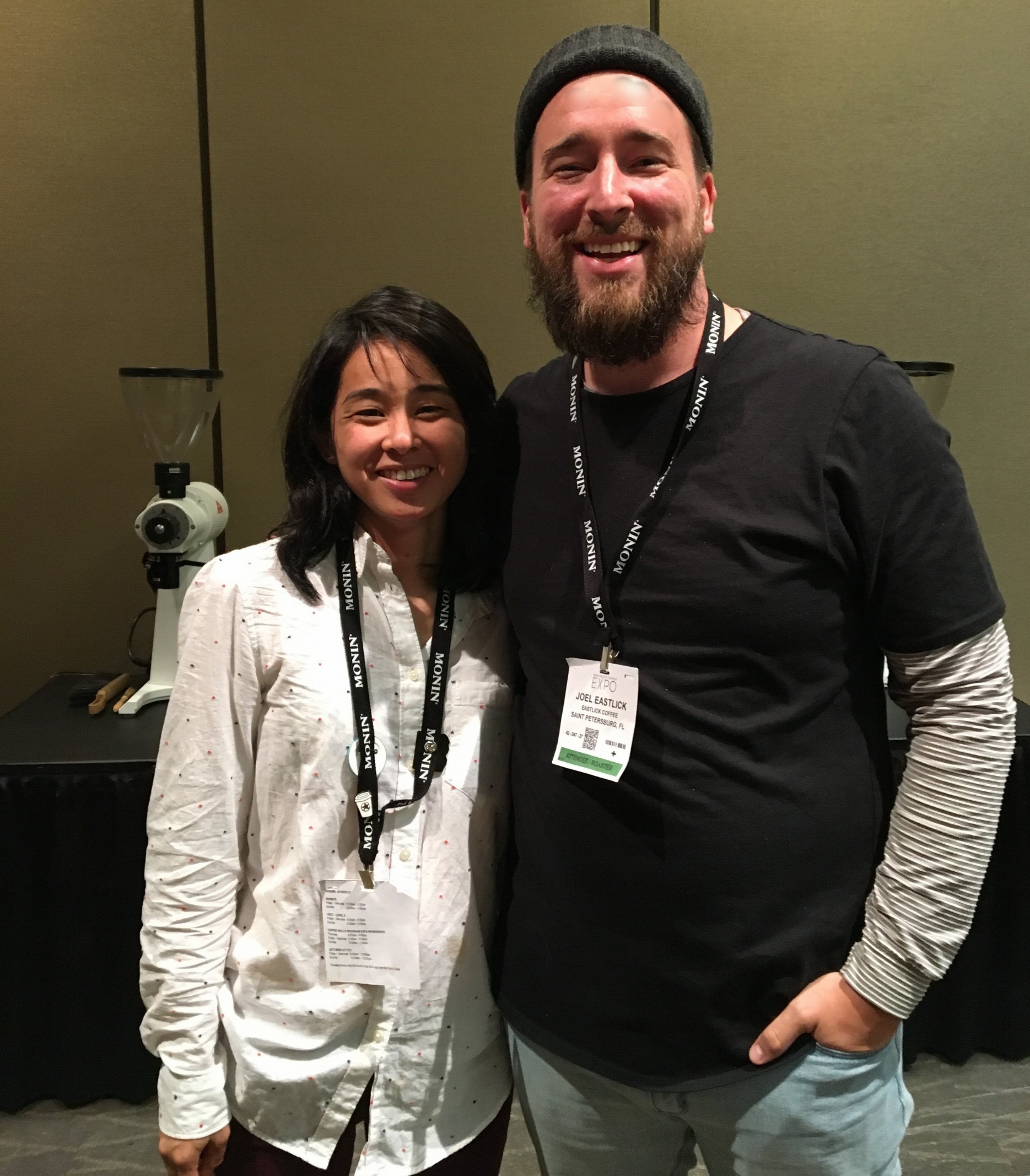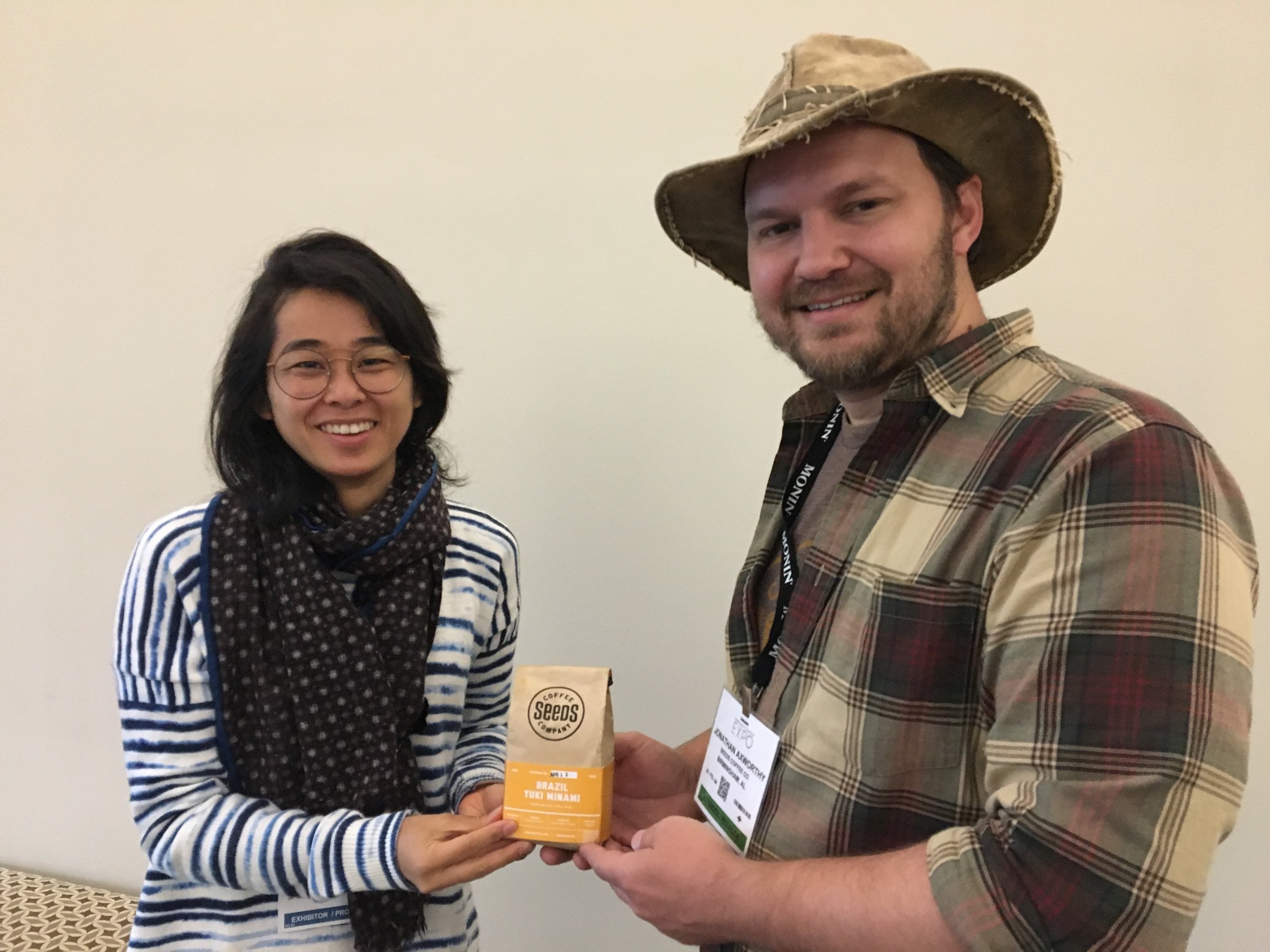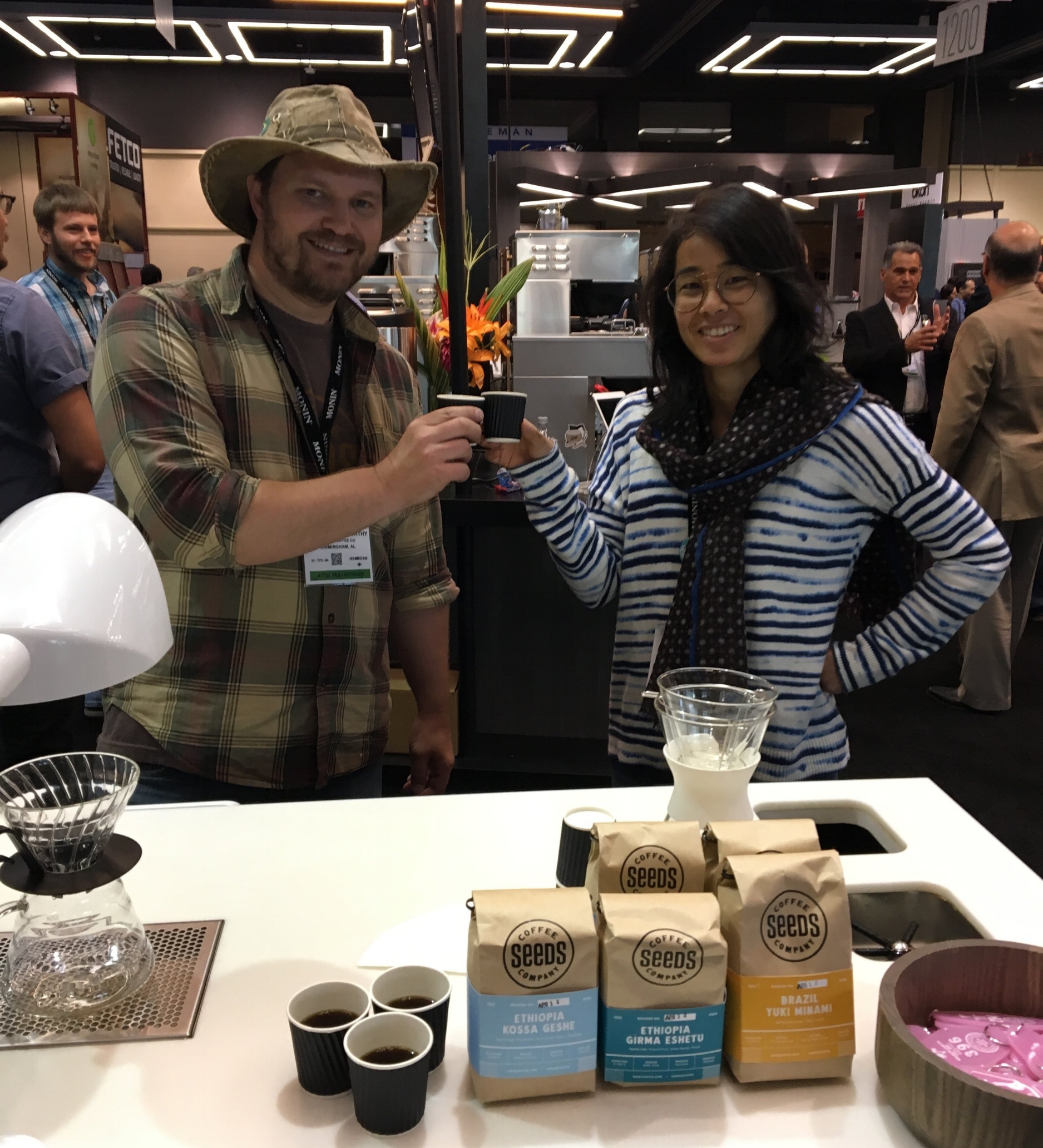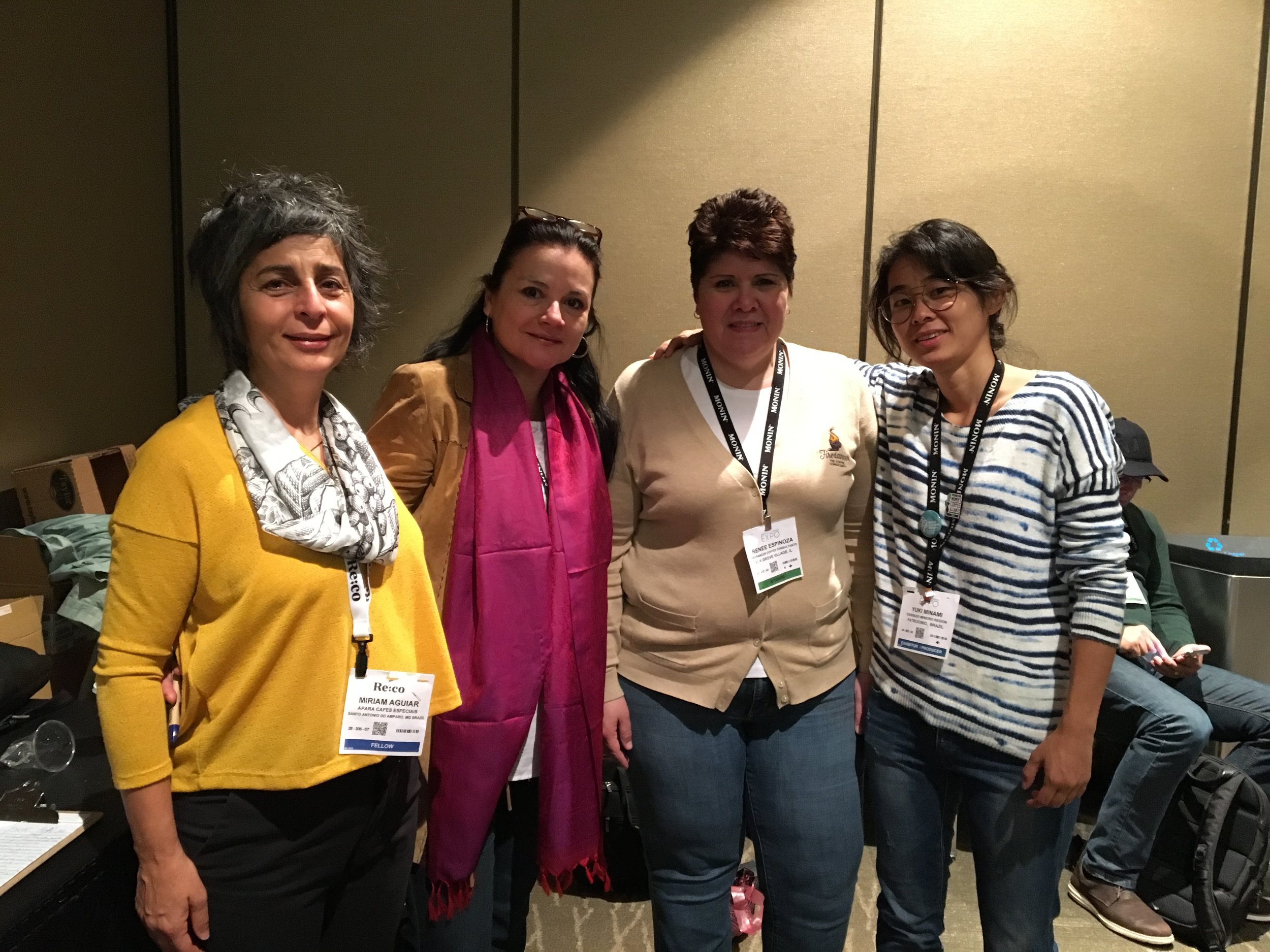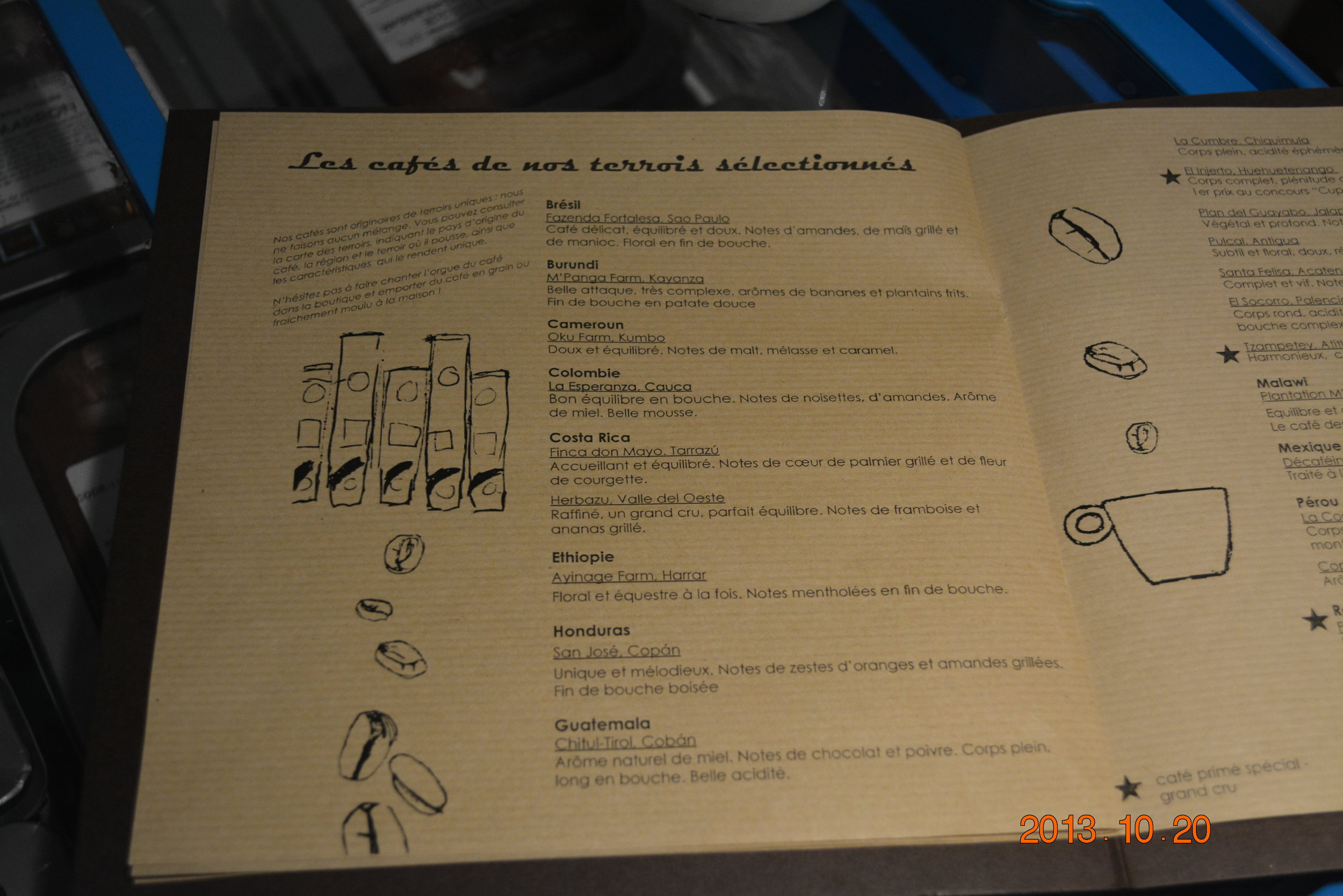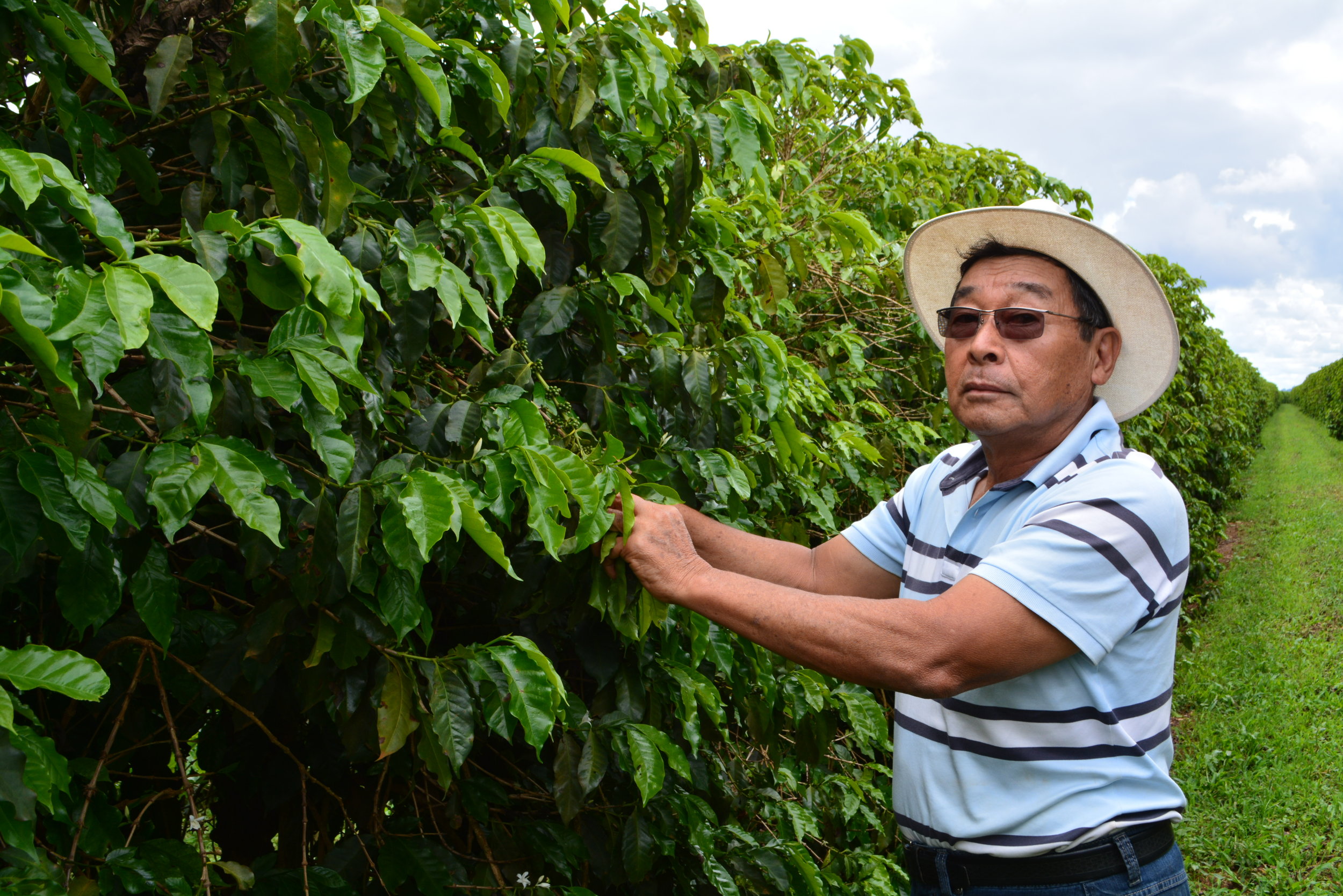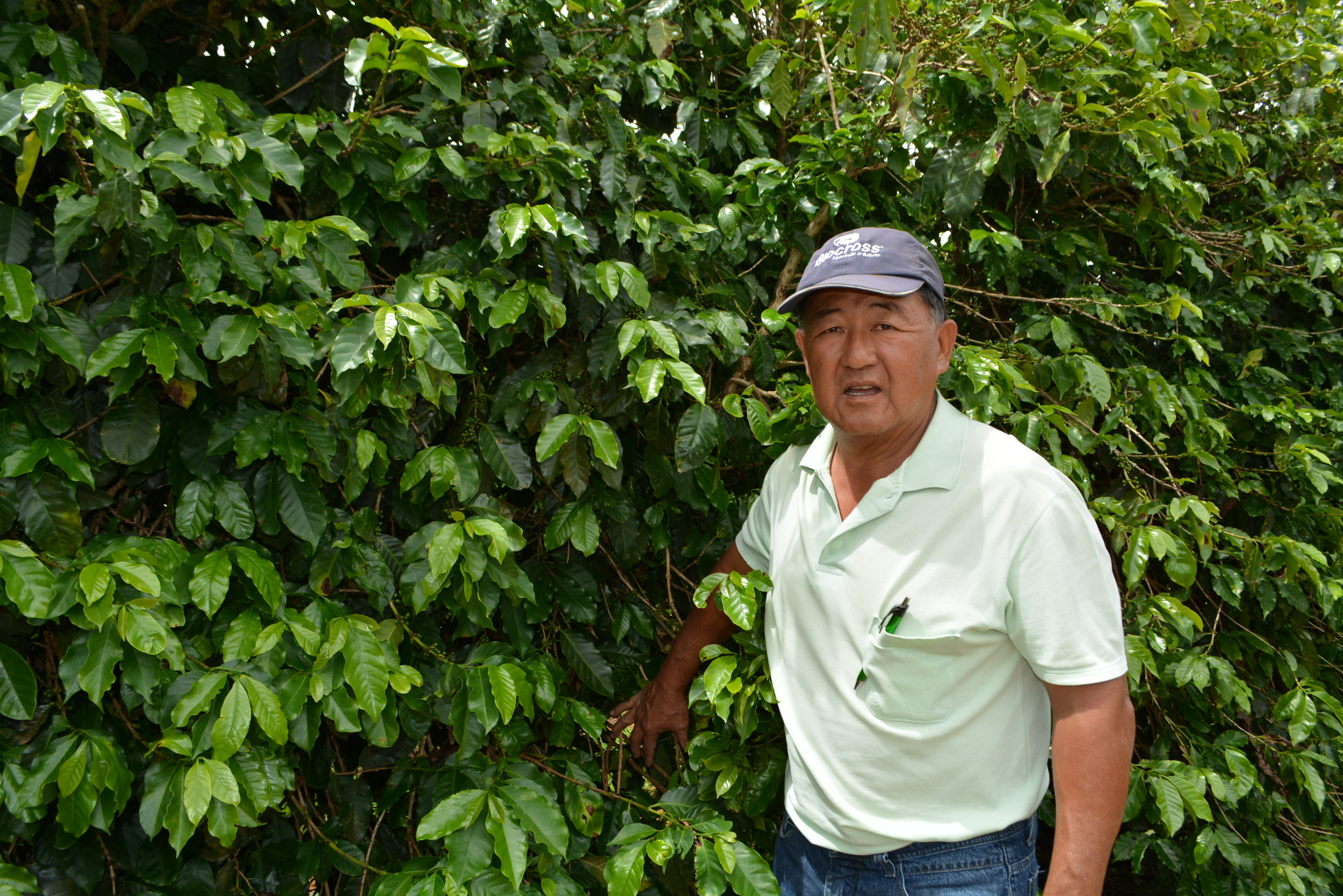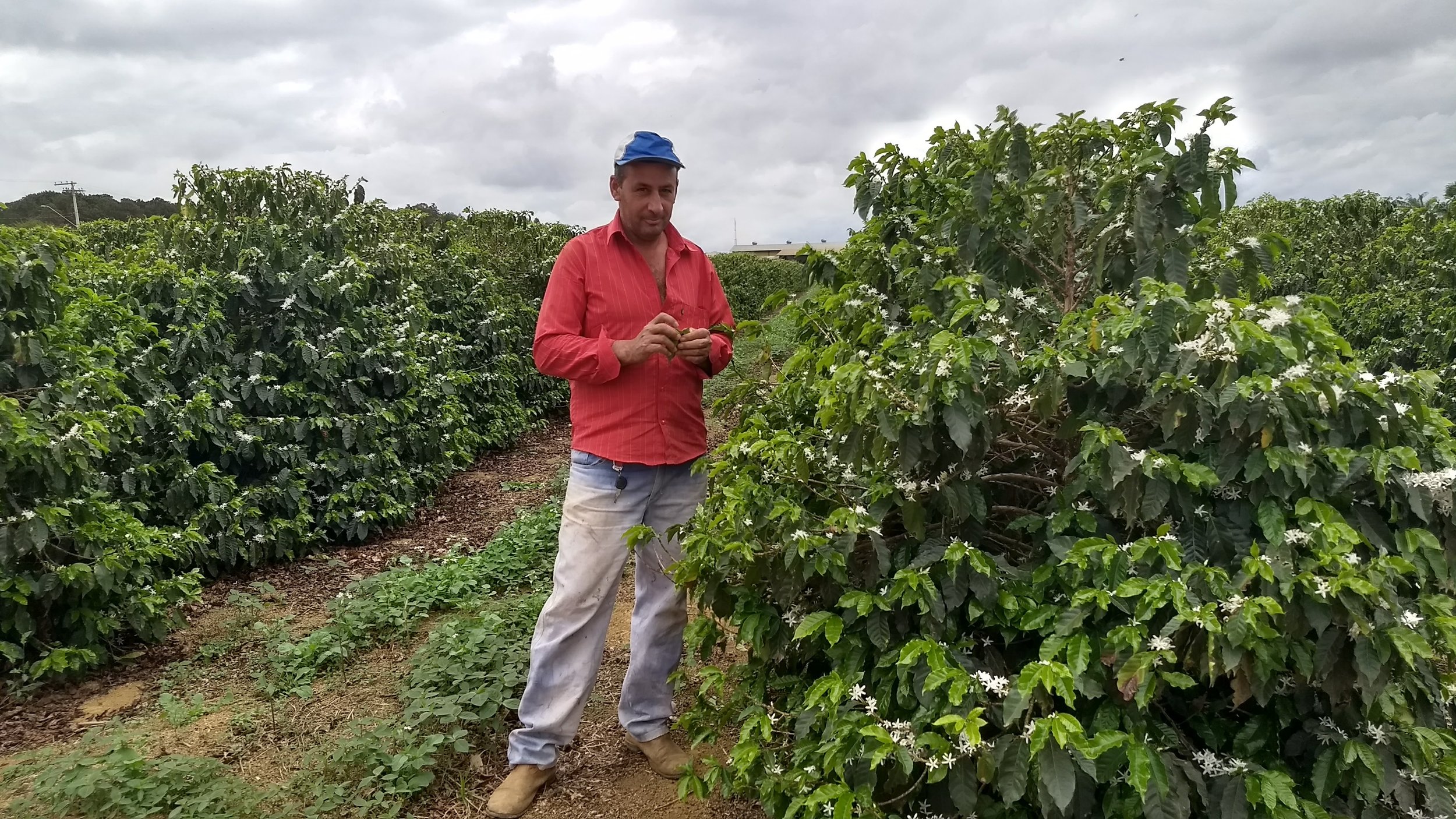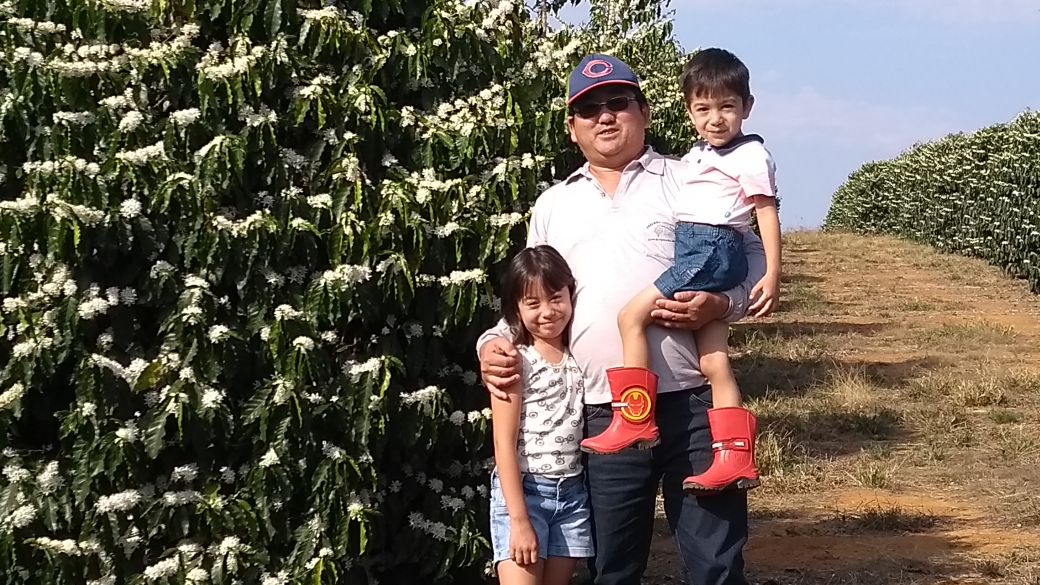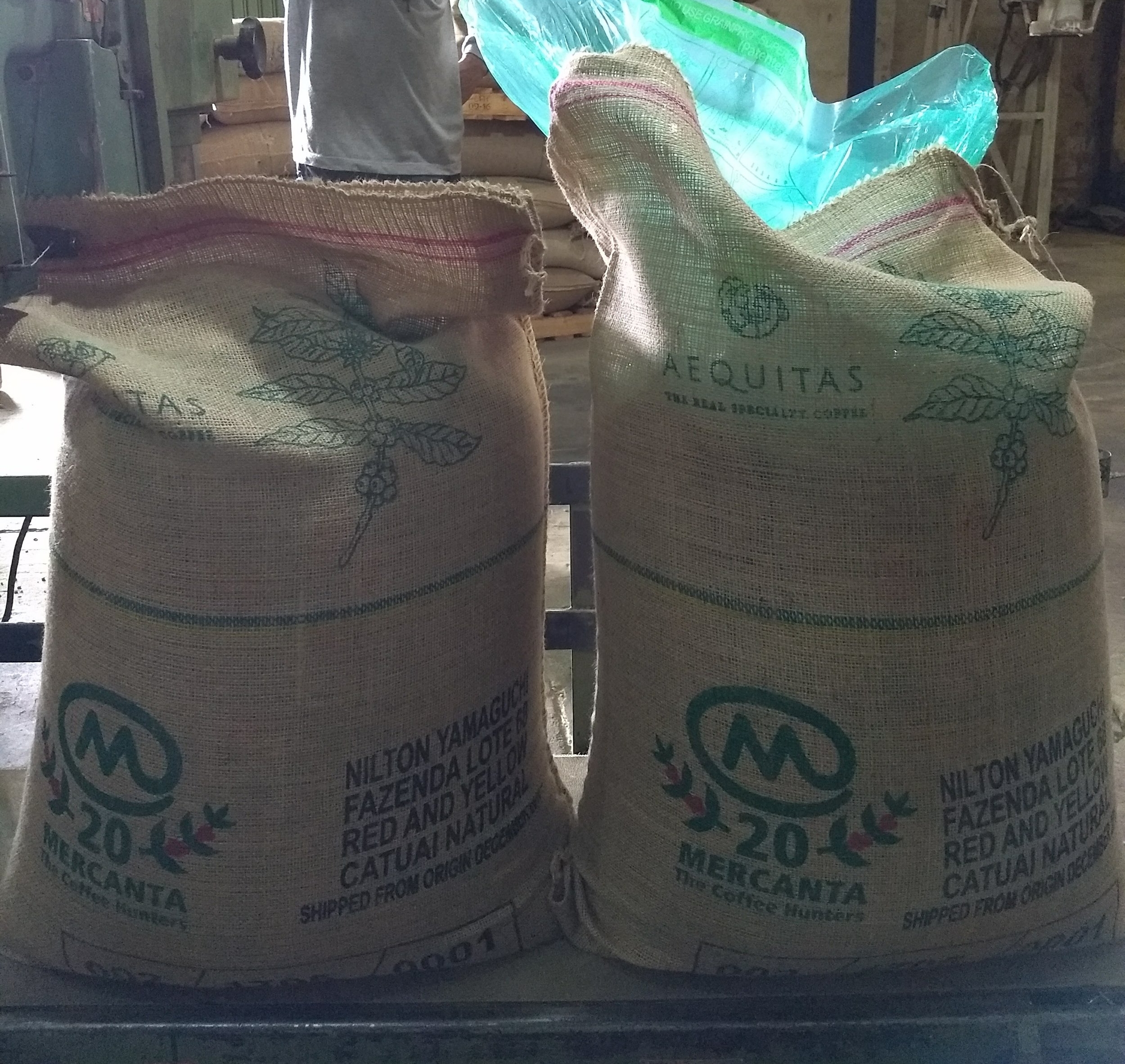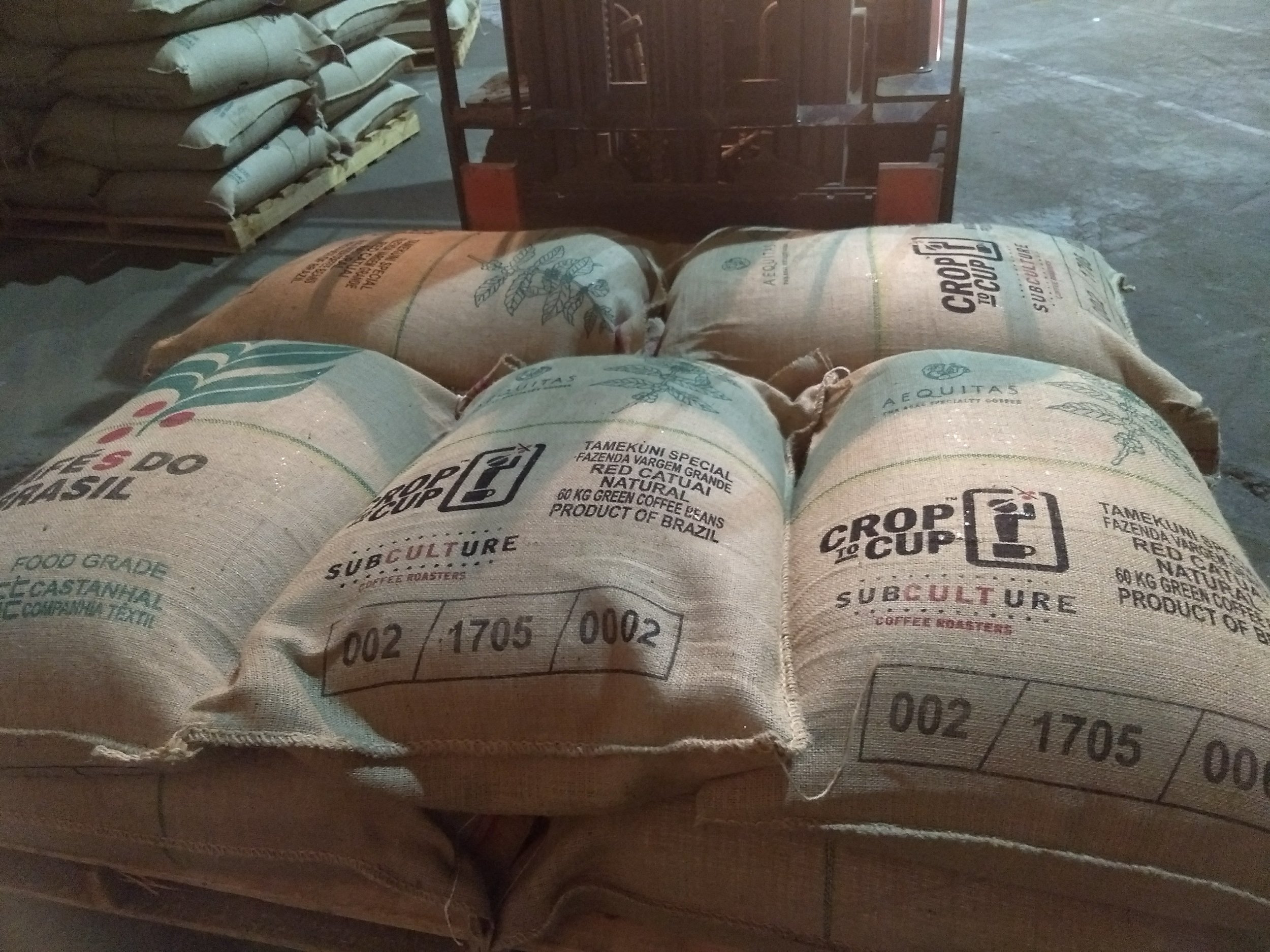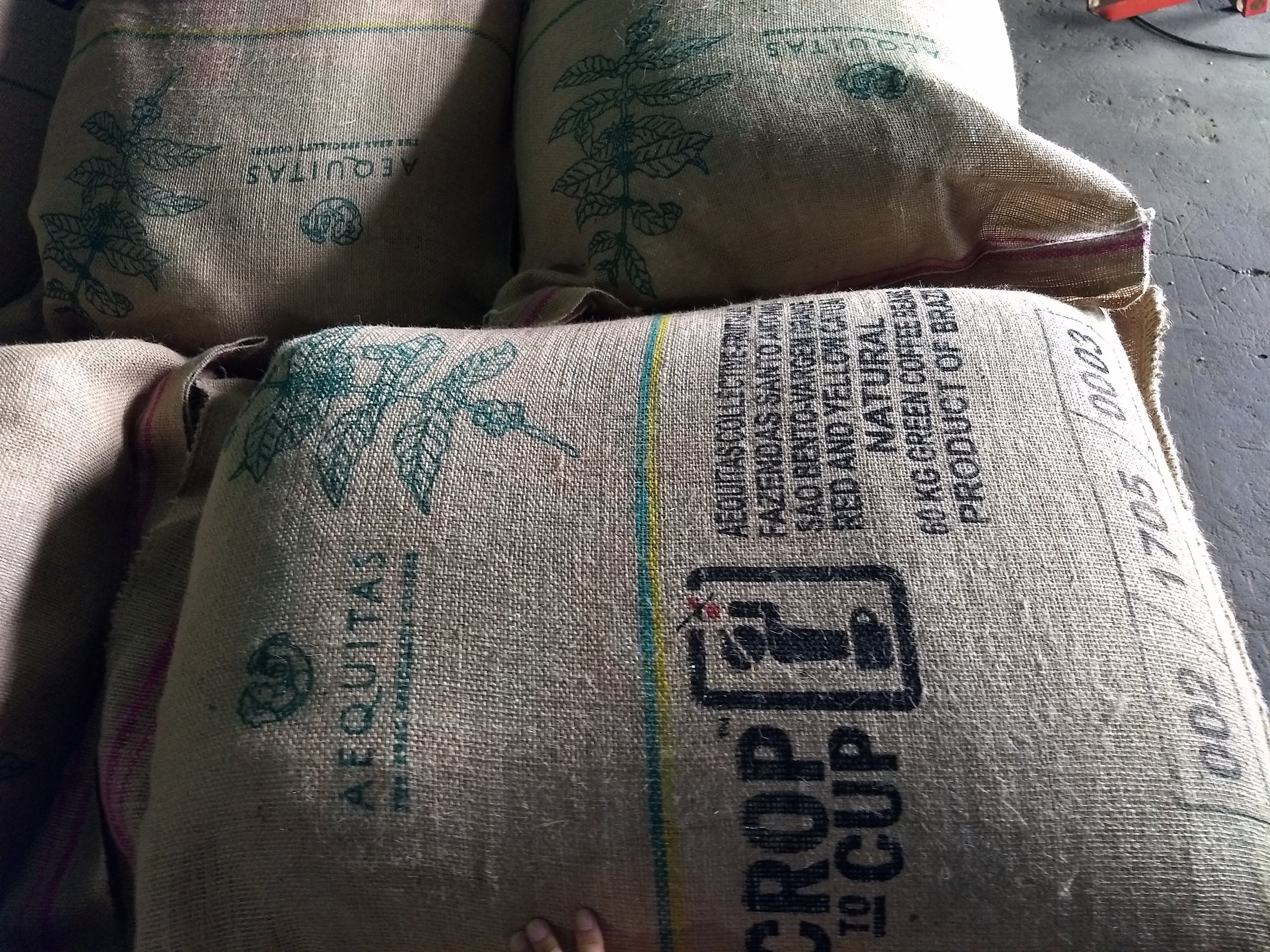After the SCA Global Coffee Expo I headed to Austin, Texas for the Cerrado Mineiro Region project with Casa Brasil Coffees to officially launch the first Designation of Origin for coffee production in the world. The project consisted in selecting five producers from different terroirs inside the Cerrado Mineiro Region who would produce a microlot for Casa Brasil.
Selfie with the customized coffee bag for the project
Last year, in July we received Joel Shuler, Casa Brasil founder and owner, and Ian Myers, Casa Brasil general manager at Fazenda Olhos d’Água and Fazenda Santo Antonio. Joel selected a coffee plot at the farm, the yellow catuaí plot number 4, and gave us harvest and post-harvest instructions for producing Casa Brasil's microlot. The microlot was hand-picked by a group of 38 people and dried in raised beds. It was a challenging harvest because the workers are used to harvest by stripping the coffee trees' branches and had never done selective harvest. Also, picking yellow fruits is harder than red ones, which are easier to differentiate the maturation level of the fruits due to noticeable distinctive colors between ripe and almost ripe fruits.
In Austin, Edu, a producer’s son participating in the project as well, and I launched the first D.O. coffee at Whole Foods, Central Market and Sa-Ten coffee shops. We did coffee demos at Central Market where we presented and brewed our coffees to final consumers using Chemex method and at the same time shared our stories, passion and love for coffee. My family’s coffees were the Olhos d’Água microlot and the Sweet Cerrado blend.
It was rewarding following the entire coffee journey, literally from seed to cup. I saw the coffee harvesting, drying in raised bed and patios, milling, storing, grading, sorting, packing, exporting, roasting, packing again and finally going to the supermarkets and coffee shop shelves. I felt very fulfilled when interacting with final consumers and sharing with them my own story in coffee and representing the Cerrado Mineiro Region Designation of Origin. I’d like to thank Joel Shuler and the Cerrado Coffee Growers Federation for the opportunity and trust and Kayo Asazu for the opportunity of making presentations to coffee customers and enthusiasts at Sa-Ten.


